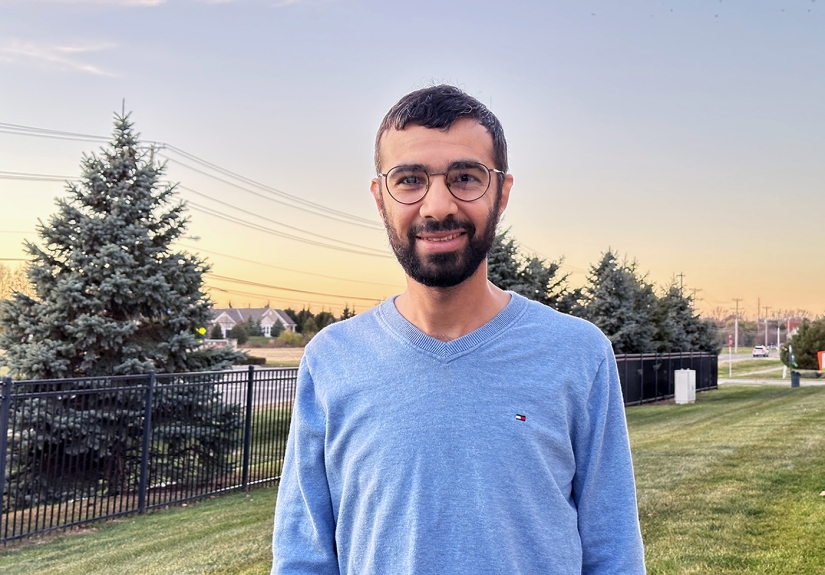PhD researcher explores tobacco cessation counseling in Saudi Arabia
Mahmood Alalwan supported by Alumni Grants for Graduate Research and Scholarship
By Kristen Mitchell

Mahmood Alalwan, a fifth-year PhD student in epidemiology, is working to develop a training program for respiratory therapists in Saudi Arabia, equipping them to provide cessation counseling for patients who smoke.
Now, his work will be propelled by new funding from the Alumni Grants for Graduate Research and Scholarship.
Respiratory therapists are in a unique position to counsel people on how and why to quit smoking because they treat patients with diseases that are often brought on or exacerbated by cigarette use, which is on the rise among Saudi Arabians, Alalwan said.
The first phase of his project, launched in early 2022, was a survey to identify what kind of knowledge respiratory therapists had related to tobacco dependence treatment and if they provide cessation counseling to patients. Based on the survey results, Alalwan, who has worked as a respiratory therapist, designed a tailored program to train respiratory therapists on how to effectively work with patients on this issue.
“We know from research that one of the effective strategies to lower tobacco burden is to get more health care providers to actively engage in tobacco control efforts,” he said. “We’re hoping after completing this training program, the level of knowledge, skills and their perceptions of how easy it is to counsel their patients will help them start to provide some sort of tobacco cessation counseling.”
Alalwan said he was honored to receive $2,600 from the Alumni Grants for Graduate Research and Scholarship Program, which provides small grants to support the research and scholarship of doctoral or master’s degree candidates for their dissertations or theses.
Alalwan plans to use the money to recruit as many respiratory therapists as possible to complete the training program. Participants will take a survey before and after the training to assess the impact of the information they receive.
Professor Amy Ferketich, a leading tobacco control researcher, is Alalwan’s adviser on the project. Because of the connection between smoking and lung disease, it is important to train respiratory therapists on how to provide brief counseling to smokers to help them quit, she said.
“This group of health care providers has not been targeted widely, yet they play such an important role in the hospital setting, where smokers with any type of cardiopulmonary disease may end up,” she said. “The award will allow Mahmood to give continuing medical education credits to research participants as an incentive to complete the training program he has developed plus an incentive to complete a follow-up survey.”
About The Ohio State University College of Public Health
The Ohio State University College of Public Health is a leader in educating students, creating new knowledge through research, and improving the livelihoods and well-being of people in Ohio and beyond. The College's divisions include biostatistics, environmental health sciences, epidemiology, health behavior and health promotion, and health services management and policy. It is ranked 22nd among all colleges and programs of public health in the nation, and first in Ohio, by U.S. News and World Report. Its specialty programs are also considered among the best in the country. The MHA program is ranked 5th and the health policy and management specialty is ranked 21st.